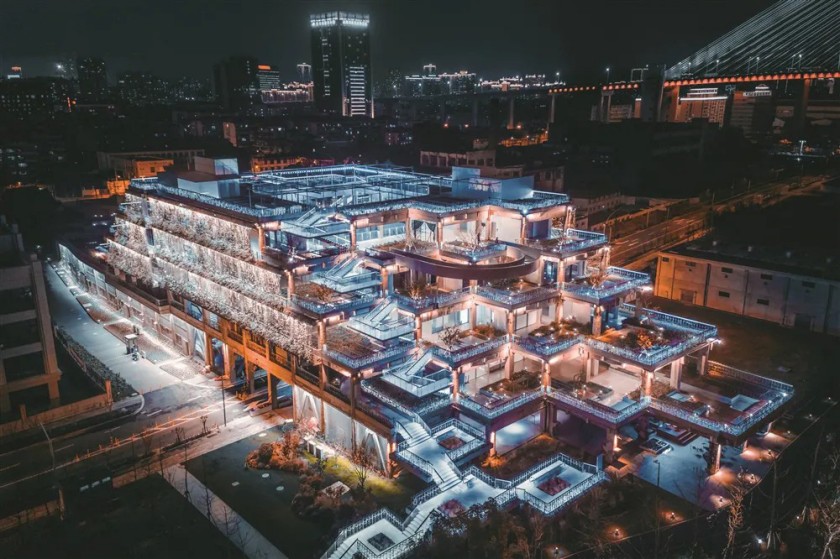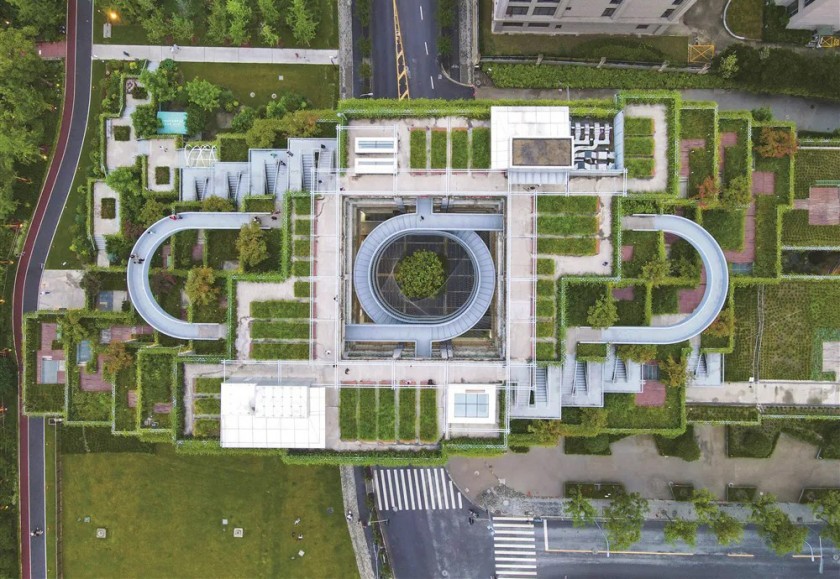Green Hill Shanghai: A Sustainable Urban Renewal Model
2024-12-11
Green Hill Shanghai stands as a shining example of sustainable urban renewal, transforming a historical industrial site into a vibrant, eco-friendly urban complex. For policymakers and city planners, it offers a blueprint for balancing historical preservation, environmental sustainability, and community engagement.

Background
The project was developed on the site of the former Shanghai Postal Bureau, an industrial relic of the city’s past. Recognizing its historical value, the developers preserved key architectural elements while integrating modern sustainable technologies, aligning with Shanghai’s urban renewal and green development strategies.
Innovative Urban Solutions
1. Green Infrastructure
At the heart of Green Hill Shanghai’s success is its green infrastructure, which seamlessly integrates nature into the urban fabric. The tiered green roof, powered by the HT-508 Modular Green Roof Tray, enhances thermal insulation, promotes biodiversity, and mitigates the urban heat island effect.
2. Advanced Water Management
The Geocellular Module Shallow Ground Rainwater Treatment System represents a cutting-edge approach to urban water conservation. It collects, filters, and reuses rainwater for irrigation and cleaning, reducing reliance on municipal water supplies and helping to manage stormwater runoff.
3. Energy Efficiency
The project incorporates sustainable materials and energy-efficient systems, including natural ventilation, LED lighting, and solar energy integration. These measures collectively reduce the carbon footprint of the development.

Social and Environmental Impact
1. Enhancing Community Engagement
Green Hill Shanghai has been designed as an open, accessible public space, encouraging community interaction. With rooftop gardens, walkways, and recreational areas, it provides residents and visitors with opportunities to connect with nature and each other.
2. Promoting Environmental Awareness
As a showcase of sustainable practices, the project raises public awareness about the importance of green technologies and responsible urban development. Educational initiatives and guided tours further amplify its role as a learning hub.
3. Economic Benefits
By attracting visitors, businesses, and cultural events, Green Hill Shanghai boosts the local economy while creating job opportunities in green construction, maintenance, and tourism.

Challenges and Lessons Learned
Green Hill Shanghai overcame significant challenges, including integrating modern green technologies into a historical site and balancing diverse stakeholder interests. Key lessons include:
- Early collaboration with local communities and stakeholders is crucial for project success.
- Flexible design approaches allow historical preservation and modern functionality to coexist.
- Public-private partnerships can accelerate innovation and funding for green urban projects.
Policy Implications
Green Hill Shanghai underscores the need for policies that prioritize sustainable development, such as incentives for green construction, stricter environmental regulations, and funding mechanisms for urban renewal. Policymakers can draw on its success to replicate similar projects in other cities.
Conclusion
Green Hill Shanghai is more than a development—it is a vision of what cities can achieve when sustainability, heritage, and innovation intersect. As urbanization continues to accelerate, projects like Green Hill offer a path forward, proving that urban renewal can be both environmentally responsible and socially inclusive.
AnteriorEnhancing Flood Protection with Geocellular Attenuation Tanks for Large-Scale Projects
PróximaReinventing Synthetic Turf Sports Fields with Eco-Friendly Drainage and Cooling Solutions
Message






